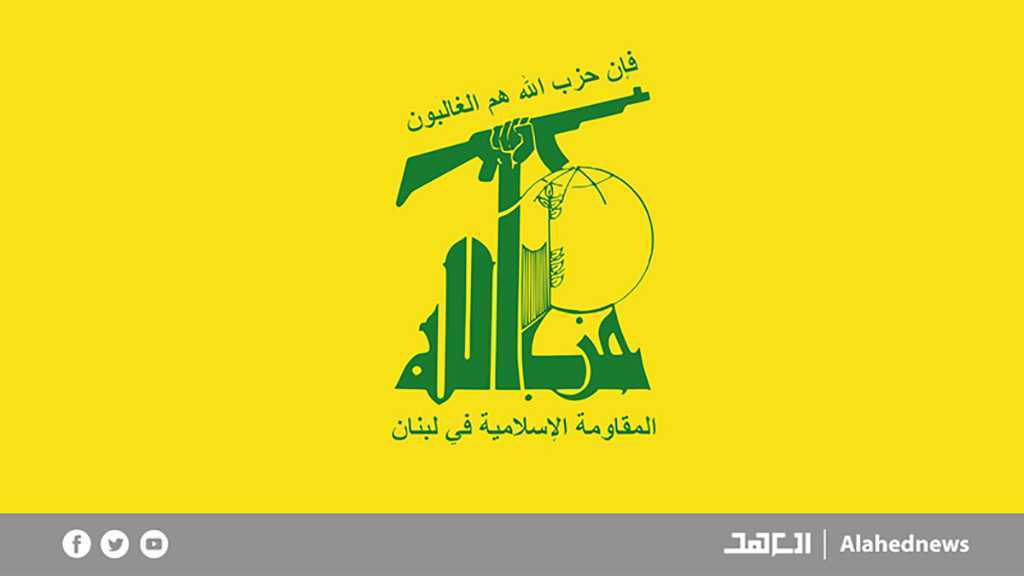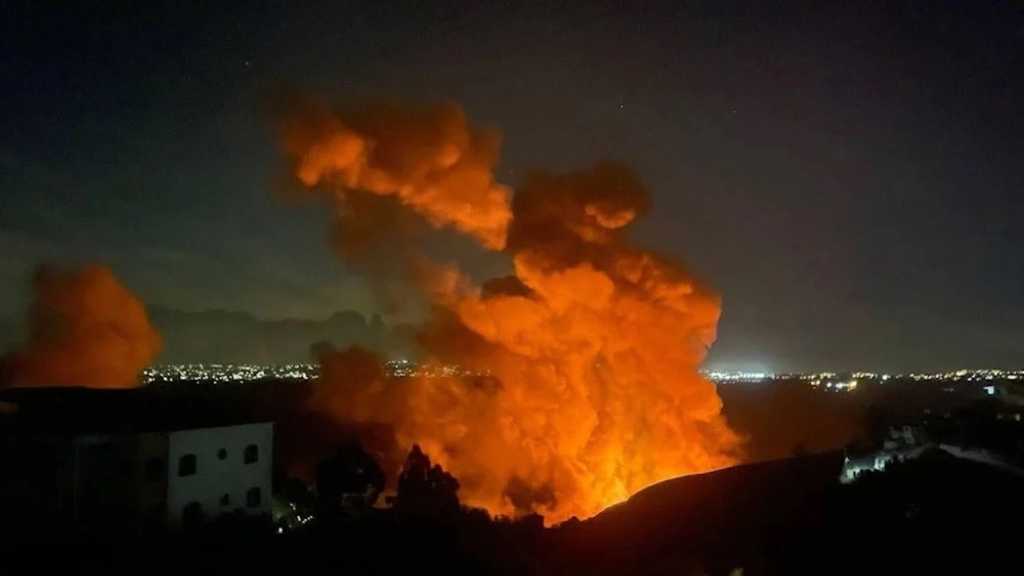
Strategic Researcher Habib Fayad to Al-Intiqad: Entire US Scheme for Region Defeated

When the United States entered its forces into Iraq in 2003, the excuse the US had made to invade this Arab country of the grand economic, cultural, and educational capacities vanished.
The excuse was ‘spreading democracy and ridding the Iraqi people of the oppressive ruler (President Saddam Hussein). Very soon, the Iraqis could only see dreadful scenes of slaughter, systemized demolition of their country, and theft of the natural resources of oil and gas as the US administration and the Zionists held perfect cooperation and coordination.
Yet, Iraq was only the start point of this demolishing hurricane, which has actually been trying to expand to other countries; whereby it has been entitled "the project for the Greater Middle East". Today as the US forces withdraw from Iraq, has the reverse counting for the end of this scheme started? Or is it going to last through other means and methods? Besides, do the Syrian incidents represent one of the titles of this continuity? Al-Intiqad Website has interviewed the strategic researcher Dr. Habib Fayad so as to expose the dimensions and consequences of this withdrawal.
Fayad sees that the incidents taking place in Syria today are related to the creation of new balances in the Middle East Region, which start with the Palestinian issue and with Iran's regional role and its entrance to the ‘nuclear club' through its peaceful use of nuclear energy, then with the Turkish attempts to play the regional giant to the cost of the Syrian regime. Besides, what is going on is directly connected with the Iranian-Arab relations and the regional role of the US after it has withdrawn its forces from Iraq; whereby Washington D.C. is trying to get out of ‘the no-war-no-peace equation' that has masked its relation with Iran ever since the Islamic Revolution in Iran in 1979; with respect to the US calculations, keeping this equation means disabling Washington from excelling militarily and bringing it out of the category of political hiring which aims at bridling Iran's regional influence. Still, this signifies the disability of the US Administration to limit the Iranian role that is expanding regionally to the cost of Washington D.C.'s presence and interests.
Researcher Fayad further sees that the US resolution to withdraw from Iraq had created an exposed and unrevealed struggle at the same time, whereby this struggle exists between Iran and Turkey to hold the regional chiefdom as the Syrian arena represents the field for this chiefdom. For instance, Ankara that seeks playing the regional giant on the ruins of the Syrian regime realizes well that not only do the implementations of the Syrian regime's survival limit its regional extension, but also these implementations lead to having a strong counterpart that possesses all excuses or even revenge abilities. In the context of the equivalence of chances and roles of Turkey and Iran as for determining the path of the Syrian crisis, Turkey is doing an effort to harm the Syrian regime; whereas Iran is standing by this regime and supporting it as Tehran recognizes quite well that holding control of the region, especially after the US withdrawal from Iraq, depends upon al-Assad's ability to remain steadfast. Unlike Turkey that seeks overthrowing President al-Assad even if this requires the intervention of the North Atlantic Treaty Organization (NATO), Iran is strongly defending the Syrian regime even if this may cost Iran an entire regional war.
Hereupon, the Syrian frontline is not only open to the open confrontation between Turkey and Iran upon Turkey's pursuit to overthrow a counterpart versus Iran's support for an ally. The Syrian frontline is rather having a war of influence on the level of the entire region: Iran pursues this influence so as to keep on getting the US out of the region and sustaining, therefore, what Iran had begun doing for Iraq; also to sustain its support for the Palestinian cause. Iran's calculations, however, do not include provoking Ankara or creating a state of aggressiveness between Ankara and Tehran. On the other hand, Turkey pursues this influence so as to gain a role that is convenient for its size without necessarily antagonizing Iran.
Dr. Fayad adds that the US scheme for the region has been entirely defeated; whereby the biggest evidence of this defeat is manifested by the big historic turn, which is represented by the US withdrawal from Iraq as a series of failures has faced the regional scheme of the US:
-The US made the reason of ‘fighting terrorism' to enter Afghanistan, but the actual intention was to besiege Iran. Ten years from then, we find that the US military is still suffering painful coups in Afghanistan, and the US has declared its intention to end its military presence in this country after a number of its allies have preceded it in doing so.
-Now that eight years have passed since the US occupied Iraq in 2003 with the intention of further besieging Iran, the US is leaving Iraq; whereas the Iranian influence exists there widely.
-The US meddled with the Lebanese affairs in 2005, exploiting the assassination of Premier Rafik Hariri, sponsoring the July-Aggression in 2006, and exercising provocation to establish an international tribunal to try the assassins of Premier Hariri; therefore, the US breached all conventions and laws of the international justice. The purpose beyond all this was to weaken Hizbullah that represents a main ally of Iran and Syria. Nevertheless, today the scene is quite different from what the US wanted: Hizbullah is the strongest player in the Lebanese political arena; whereas the US allies - "the March-14 Alliance" - have now become of little political influence in Lebanon.
-The US supported Mahmoud Abbas (Head of the Palestinian National Authority) versus the Islamic Resistance Hamas. Yet, we can see that this support did not strengthen Abbas but it allowed Hamas to gain ‘a private republic' in Gaza.
Fayad continues "Today we see that this scheme has headed towards Syria. Although it has succeeded in creating security confusions for al-Assad's regime, this scheme has failed to accomplish the main plan: overthrowing the regime. Such fact has existed upon the strong public support for the Syrian president and upon the coherence of the civil and military administrations of the government, specifically upon the military institution's abiding by the Syrian president so as to face the crisis that has so far lasted for eight months. Likewise, the Chinese and the Russian stances strongly support no military interference with Syria.
Fayad clarifies that this blasting defeat of the US scheme for Iraq and the region, in addition to the purpose of maintaining the threatened US interests in Iraq, has made the US shift into the method of escalation and blackmailing Iran - the country which is most influential in Iraq. It is known that when the US fails at achieving its ultimate requests, it commences decreasing those requests gradually so as to avoid total loss eventually. For instance, having supported the armed Syrian opposition for eight months, the US realizes it is impossible to change the Syrian regime forcibly. Thus, the US has shifted into the stage of raising the level of interior escalation in order to negotiate the Syrian issue with Iran and, hence, guarantee keeping the least possible interests in Iraq.
As well, the US has made the Arab League - headed by the Gulf Cooperation Council (GCC) - perform a main role in this scheme; whereby this role is scandalously exposed through this game of blackmail. Currently, Washington D.C. seeks blackmailing Tehran and waving ‘an Iranian Lockerbie' to draw Tehran to negotiations and to create a serious chance for settlement as the US is concerned about its interests, which are threatened in Iraq or - at least - to find a convenient environment for reaching an understanding regarding the regional borders of disagreement. Hadn't it been for the sake of negotiations, what could have made an explanation for the US hurriedness to claim that ‘the attempt of assassinating the Saudi Arabian Ambassador to the US Adel al-Jubeir had been exposed'?
Dr. Fayad iterates that the US pursues making a bargain with Iran in order to share the administration of the Iraqi case - just like the US-Syrian understanding regarding the Lebanese case after "The Taef Agreement" (1989) had been made. As for Iran that realizes itself as the strongest player in the Iraqi arena, it does not find it is obliged to meet the US request; whereby Iran is going to do some negotiations in order to get the US again into the game of buying and passing time and practicing circumvention until the US withdraws from Iraq without seeking any privileges - just like Iran has done concerning its nuclear program; that is, the eight-year-talks between Iran and the West have not prevented Iran from fulfilling its whole nuclear agenda. As well, Tehran hopes that these negotiations might settle the atmospheres of confusion between Tehran and the Kingdom of Saudi Arabia.
In case the negotiations between both sides reach a dead end, Fayad sees that the US Administration is going to find it has two choices only: backing as Iran advances or directly confronting Iran. Hereupon, as soon as the US realizes that Tehran's regional efforts aim at getting the US out of the whole region rather than only from Iraq, the U.S. will be closer to the choice of confrontation - unless it chooses to leave this context and forget about this region for the sake of handling its interior problems... Eventually war is going to happen - it is only a matter of time.
Source: al-Intiqad, translated by moqawama.org
Comments



